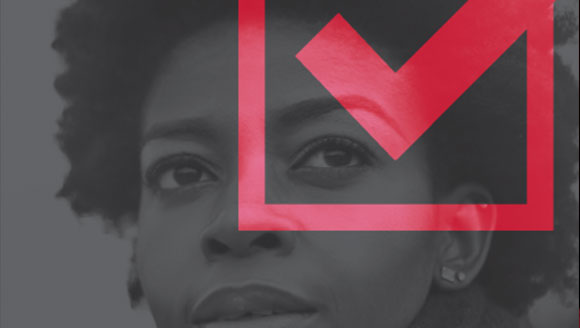Black Joy, Black Power, Black Votes
Black voters have a lot to celebrate. Investments we’ve made in Black voters over the last several years have predictably paid off, and we are steadily moving toward the full realization of our electoral power. Everyone else should celebrate, too. When Black voters win, everybody wins because no progressive change happens without Black voters. We usher in candidates who champion progress on the economy, criminal justice, healthcare, the environment and more.
For the most part, liberals have been distracted, outmaneuvered and outpaced as the attacks on the fundamental rules of voting have increased in the last two decades. Even during this current 2020 primary season, racial justice activists and advocates have still not been able to elevate voting as a popular, iconic fight for freedom that defines the progressive agenda. We are still letting the legal defense strategy lead the fight, while the right wing devotes resources to energizing their base on voting issues, powering them to win big anti-democratic changes.
Conservatives—supported by major corporations—have pushed us back as close to the poll tax as they can, led unwarranted and inaccurate voter purges, defunded and closed polling sites, gutted the Voting Rights Act, doubled down on felony disenfranchisement (while also increasing racially biased felony convictions), fought against voter expansion initiatives like early voting, and successfully spread racist misinformation to raise the boogeyman of voter fraud and the generalized fear of a Black planet, in order to justify all of the above.
By supporting conservatives who promote voter suppression, Fortune 500 corporations are helping to repeal the guarantees of democracy. They stand by silently while the very customers they depend on—Black people, other people of color, young people, elderly people and poor people—suffer unjust attack after unjust attack. Even worse, they proactively fund voter suppression through the American Legislative Exchange Council (ALEC). We have not yet created consequences for corporate executives’ decisions at the level we need to.
Despite these attacks, Black voters have steadily taken an undeniably powerful leadership position in shaping American politics. Earlier this decade, for the very first time in history, we celebrated the moment when the overall rate of Black voter participation (relative to eligible Black voters) surpassed that of white voters. But, in a sign of our troubling lack of focus and enthusiasm on voting, we did not celebrate this milestone nearly enough.
An analysis conducted by Color Of Change, based on Catalist’s “Who Voted” analysis in combination with national vote counts, shows that Black turnout surged by 51% over 2014. The Black share of the overall electorate ticked up, too, from 11% in the 2014 midterm, to 11.8% in 2016 presidential, to the slightly higher 11.9% in the 2018 midterm.
Imagine how much farther we could get if we won a major participation-driving rules change at the national level, as we did with the National Voter Registration Act of 1993?
Even if we consider the specific distribution of the modest increases in 2018, it proved game-changing in certain elections. We all know the winning ingredient in the 2017 Alabama special election that carried Doug Jones to the Senate was Black women voters. In Georgia’s 2018 governor’s race, the Stacey Abrams coalition essentially turned out more Black votes than the overall votes Democrats received in 2014. Abrams managed this feat while contending with the vote-blocking schemes of Brian Kemp, her Republican opponent, who also served as Georgia’s secretary of state during the campaign. Kemp oversaw a voter purge of more than 50,000 mostly Black voters, as well as a brazen episode of voter suppression that culminated with a group of elderly Black people being forced off a private bus organized to get them to the polls.
When we factor in prosecutor races, for example, we see an even fuller picture. Color Of Change and others have worked to put a progressive vision for criminal justice reform at the center of public debate during prosecutor elections. We have found that when there is a clear referendum on criminal justice on the table, Black people show up. If we center issues that motivate people in other low-participation elections—such as school board, mayor and secretary of state—we’ll start to see more engagement, enthusiasm and voters. And more power to set the agenda for those races. It is a viable strategy, but only if we support the infrastructure for civic participation, and if we are serious about holding elected officials accountable for delivering real reform after the election is long over.
In truth, our own investments in understanding the pain and dreams of our own communities and our ability to engage people on our own terms have produced this steady electoral success. In our long history in America, the antidote to our disillusionment with politics and grave disappointment in society has always been our abiding faith in one another. Our belief in the power, joy and ascendance of Blackness has motivated us to care for ourselves when no one else will and realize our potential when others deny it.
Color Of Change organized “Black Joy Brunches” and Black women’s events across the country in 2018, bringing out more than 10,000 people across more than a dozen cities, converting their energy for criminal justice reform into true enthusiasm and leadership on civic engagement. These energized, intimate and motivating experiences were unapologetically Black. We turned talking about voting into something social: a community ritual driving towards collective action.
Black Joy brunches didn’t begin with a long list of policy issues. We started by talking about community. We talked about building a network of our own—something independent. We tied that to our community’s long history of doing the same: our churches, our culture, our institutions. We combined this human approach with contemporary, data-driven targeting techniques to bring new people into the fold and ultimately change the cultural conversation about civic participation—both voting and post-election accountability.
We have activated people who became driven to educate themselves and others. We have increased the rate of participation, including activating first-time voters. But to keep that trend going, we need to invest in community leaders, infrastructure for bringing people together and fights on issues like criminal justice between election cycles, which keep the core of our community leaders organized, motivated, focused and innovating.
And we also need to keep winning. Winning begets winning. When we build a “winning team” brand, more people will want to join the team. Winning issue campaigns and corporate campaigns that deliver real value to people is essential to building faith in elections and can make an entire community feel like it can be heard.
Those Black voters in Florida whose freedom to vote was just restored are just like you and me. We need to believe in the power of voting before it becomes ritual and instinct for us. The mere fact of voting isn’t meaningful enough for most voters. These new Florida voters deserve the attention that any white voter gets. They deserve the joy of participating. All Black voters do.
Black political power is at stake. Progress for America is at stake. Our movement towards freedom is at stake. We must invest more in ourselves and in Black leadership at every level, refusing to coast on the satisfaction of recent, hard-earned victories. We must consistently deliver on this new promise to Black voters: authentic and joyful engagement, always on our own terms, both during and between election cycles.
So many leaders in our society break the promises they make to Black people. Black organizations, funders, campaigns and institutions must not add to that disappointment. Rather, we must push ourselves to constantly innovate new ways of realizing the collective promise of Black folks as a people.


 Equality Index
Equality Index  Senate Report
Senate Report  2020 SOBA Essays
2020 SOBA Essays  2019 Report
2019 Report 